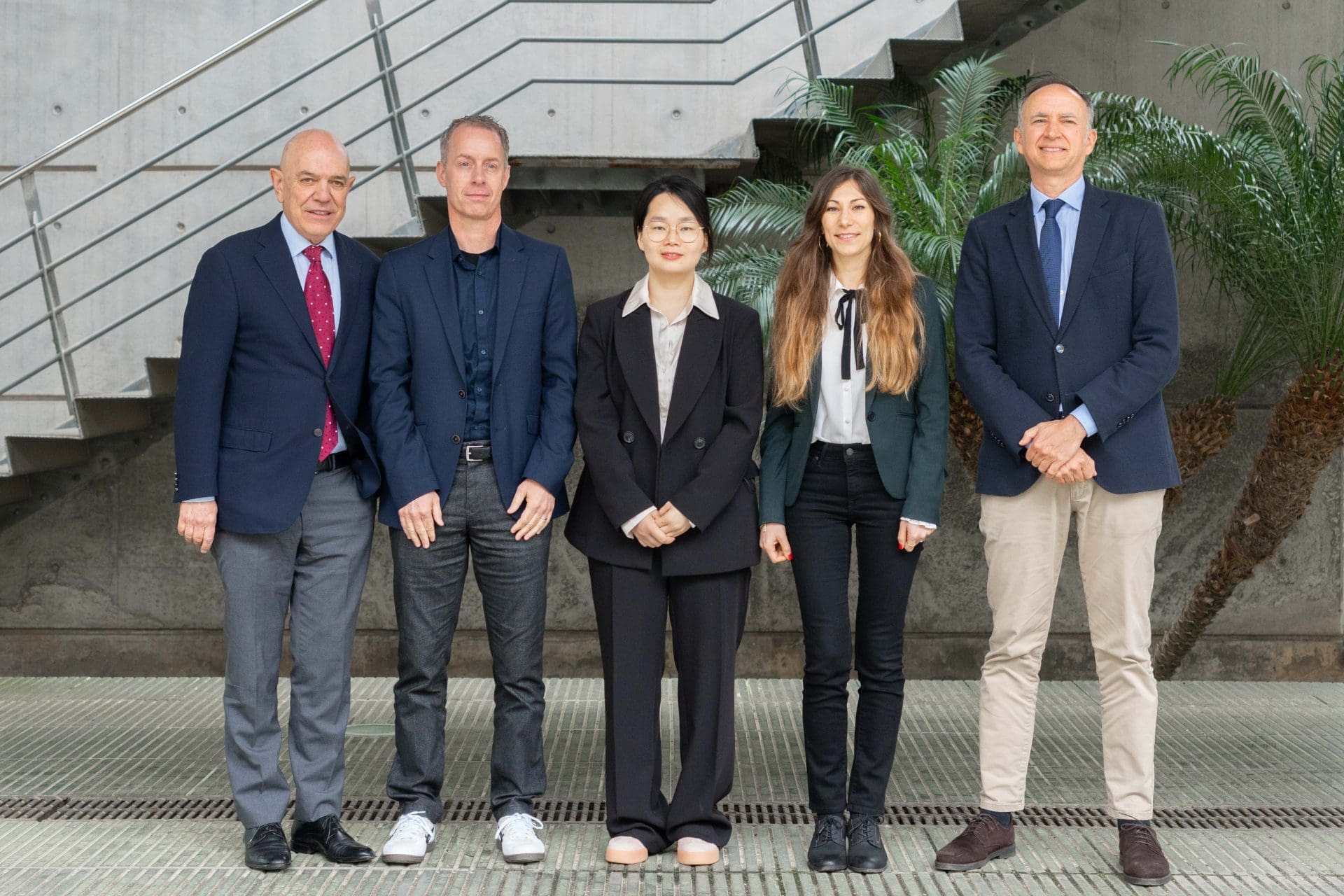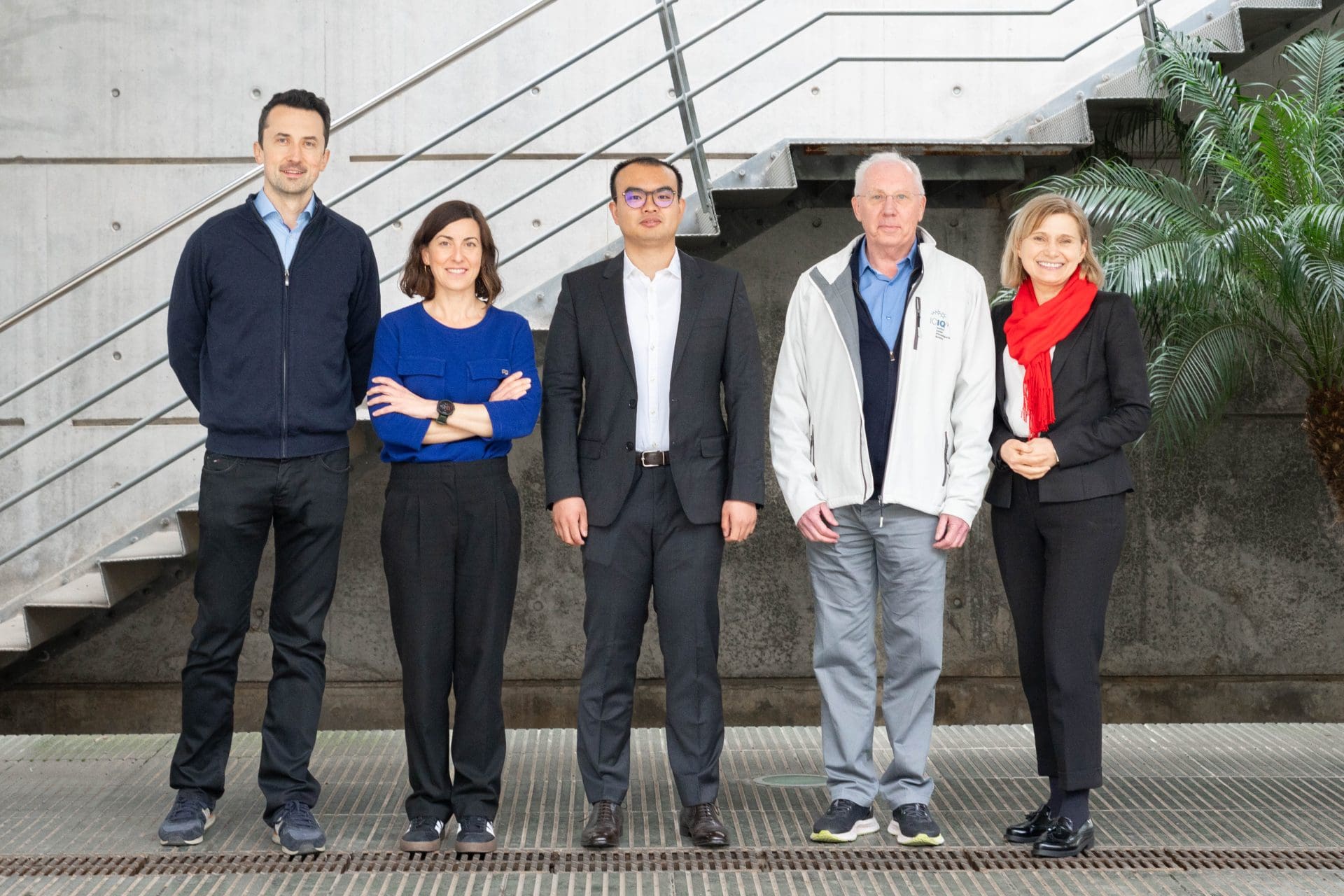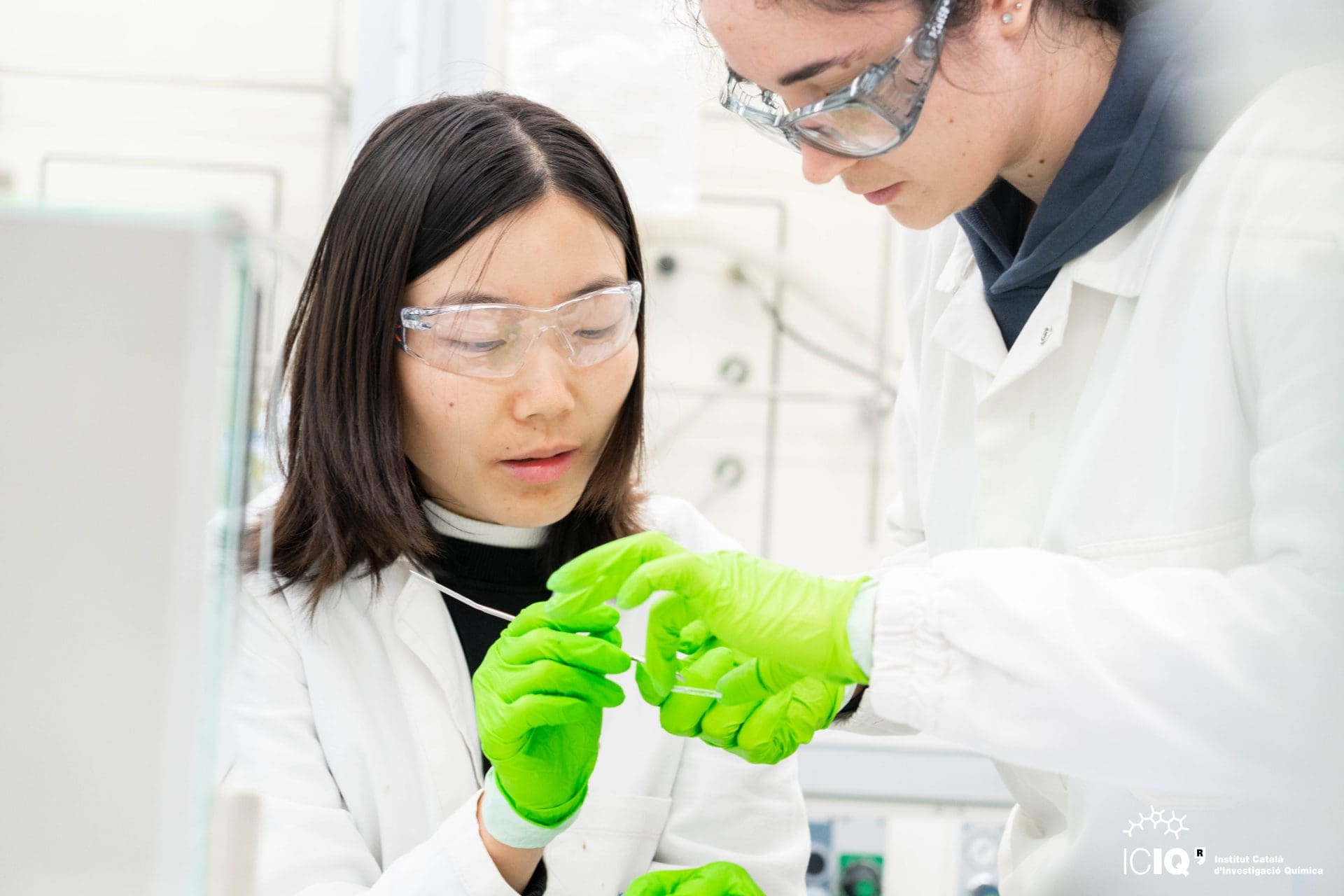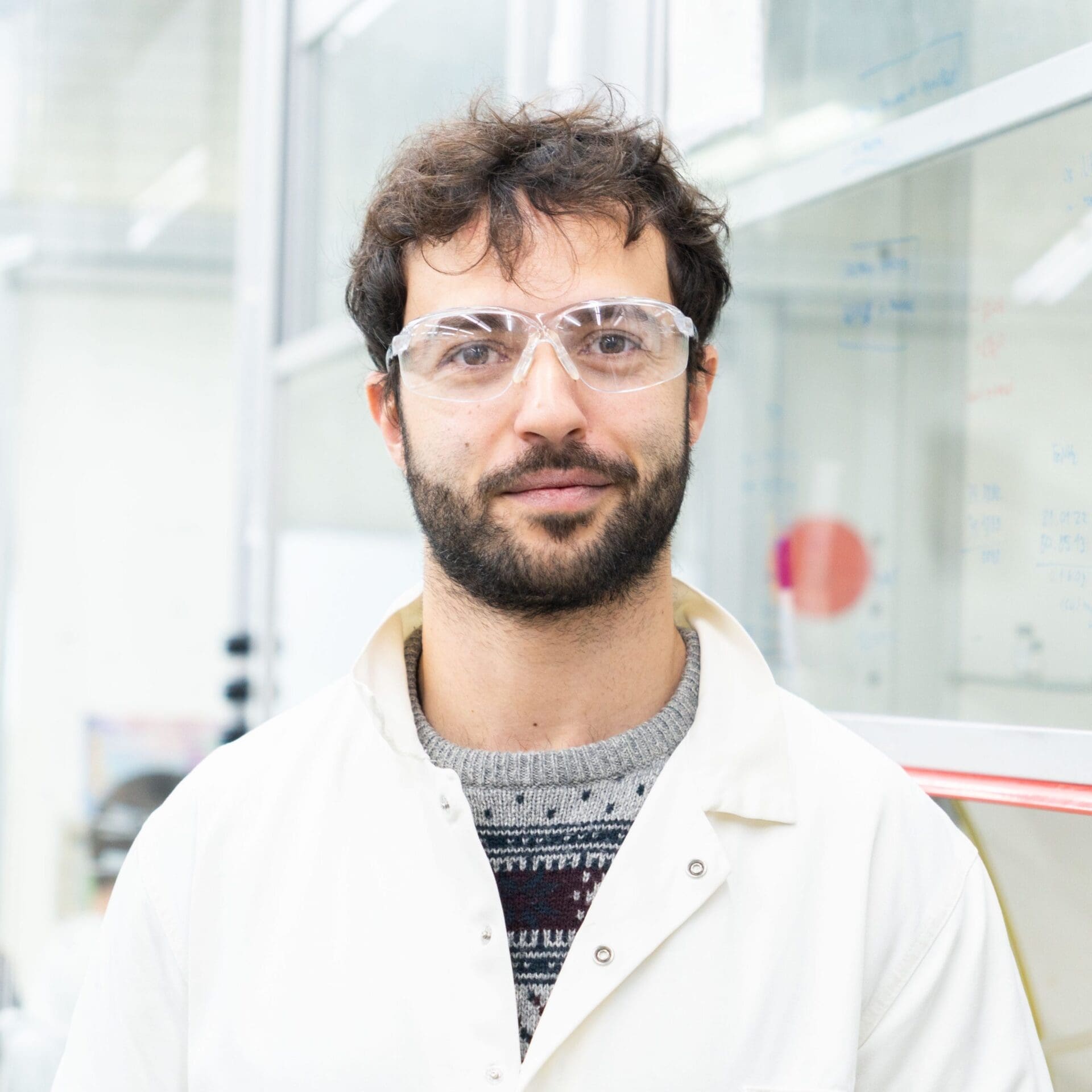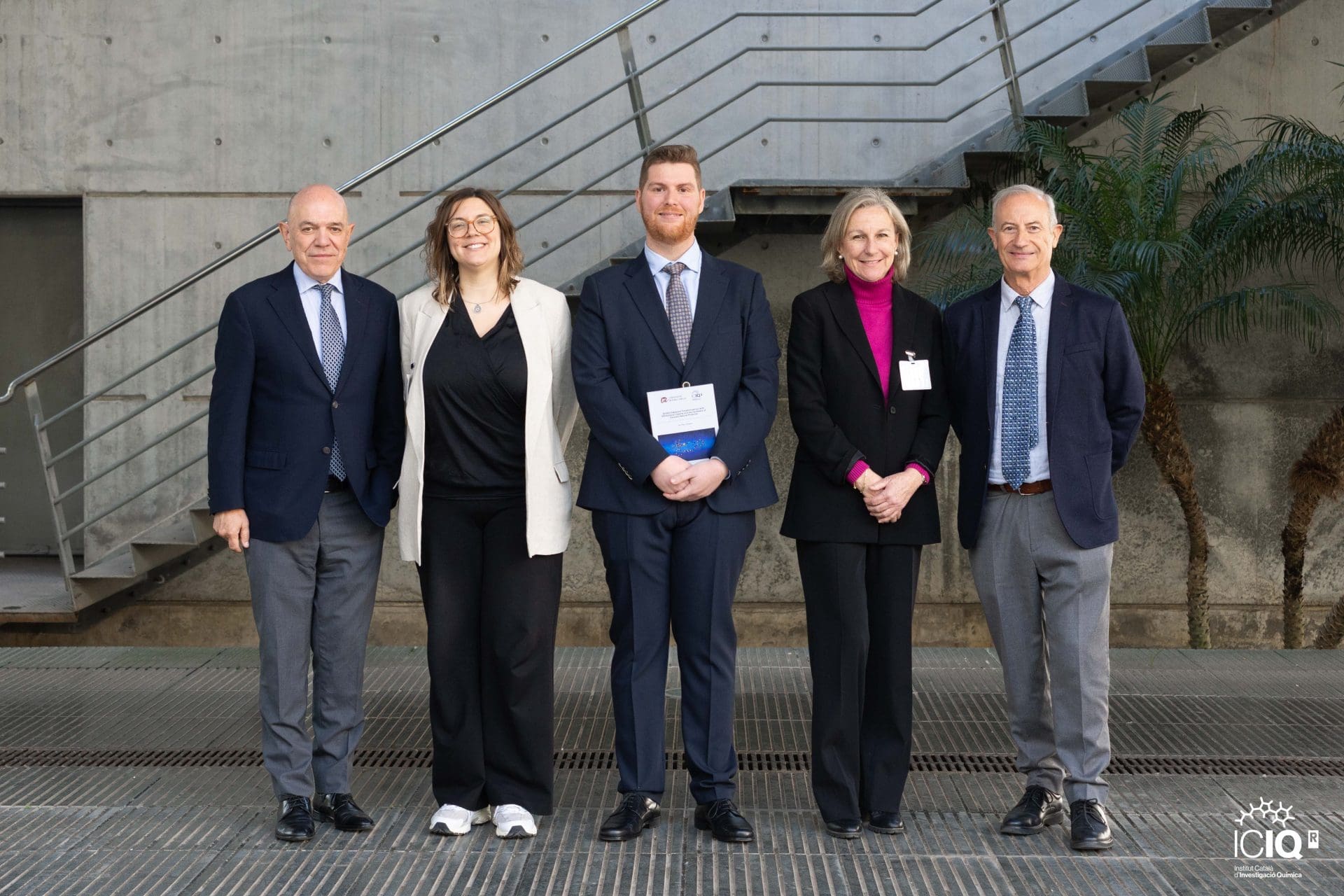Félicitations, Dr. Raymond!
15th July 2021 – Justine Raymond, PhD student under the supervision of Prof. Pericàs and Dr. Helmut Buschmann (AiCuris), has defended her PhD thesis entitled “Applications of Flow Chemistry Methods and Computer-Aided Approaches to Expedite the Development of HBV Inhibitors” (assigned to Organic and Analytical Chemistry Department of the Universitat Rovira i Virgili) publicly on July 15th.
The members of the evaluation committee were: Prof. Mercedes Amat (Universitat de Barcelona), Prof. Montserrat Dièguez (URV) and Prof. Thierry Langer (University of Vienna).
Dr. Raymond was born in Mulhouse (France). She studied Chemistry at the École Nationale Supérieure de Chimie de Montpellier from 2013 to 2017. After some months working as a Synthetic chemist in Bicoll and BioNTech AG, in May 2018 she began her PhD at ICIQ, working on the Marie Sklodowska-Curie Horizon 2020 project VIRO-FLOW. In November 2019 she joined AiCuris (Germany) to finish her PhD. She plays the drums in a band (Aourduo) and enjoys hiking, going to concerts – mostly doing anything related to music.
What do you want to achieve as a scientist?
I’m really interested in the outreach part of science. With the huge amount of fake news we have out there, I think it’s important to build trust again between scientist and society, make sure there’s transparency and trust. During the PhD, I participated in an edition of the European Researchers Night.
What surprised you the most the first time you came to ICIQ?
I was super enthusiastic to work at ICIQ. The installations and facilities are excellent, you have all the scientific support you need.
From your experience at ICIQ, what do you think we can improve?
I think there are still in need to acknowledge the importance of mental health, especially in PhD students. ICIQ is an excellent place for research, but the research has some “side effects” derived from exhaustion or frustration. The PhD is challenging and stressful for the students and I think a support system will help them. For example, some mentoring programme.
What do you wish you had known at the beginning of your PhD?
Personally, in the beginning, I got carried away and started doing too much and I think I needed someone to tell me that having a PhD is great but it’s not everything. Don’t try to do everything at the same time because generally it won’t bring good results.
Which is the most important skill you learnt?
I learnt management and communication skills, but I think the most important one is resilience. In the beginning, the experiments don’t go the way you want, but you’ll see that everything is fine in the end.
If you were a piece of lab equipment, what would you be?
A Thin-Layer chromatography plate, despite all the technological advances, it’s the simplest and the fastest way to know what’s going on.
What is your favourite molecule?
Oxytocin, it’s what PhDs need to survive and from an evolutionary and social point of view makes us human.
Related news

Let's create a brighter future
Join our team to work with renowned researchers, tackle groundbreaking
projects and contribute to meaningful scientific advancements
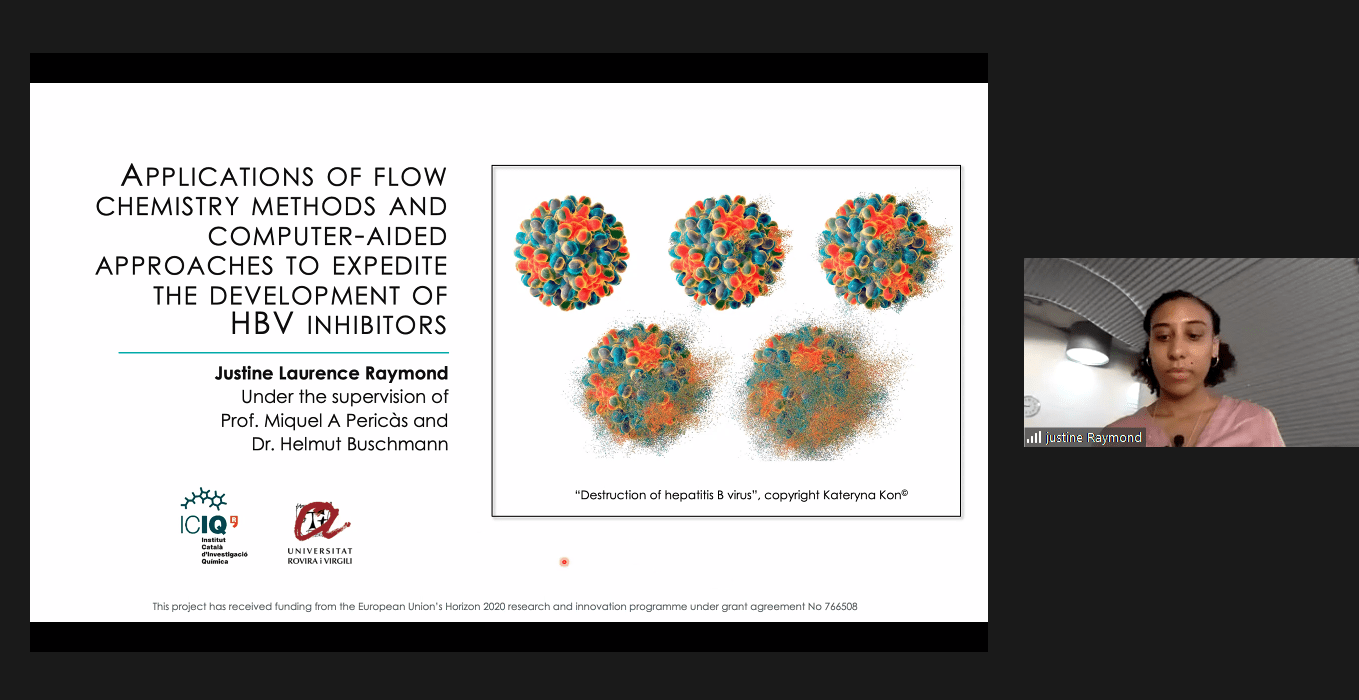






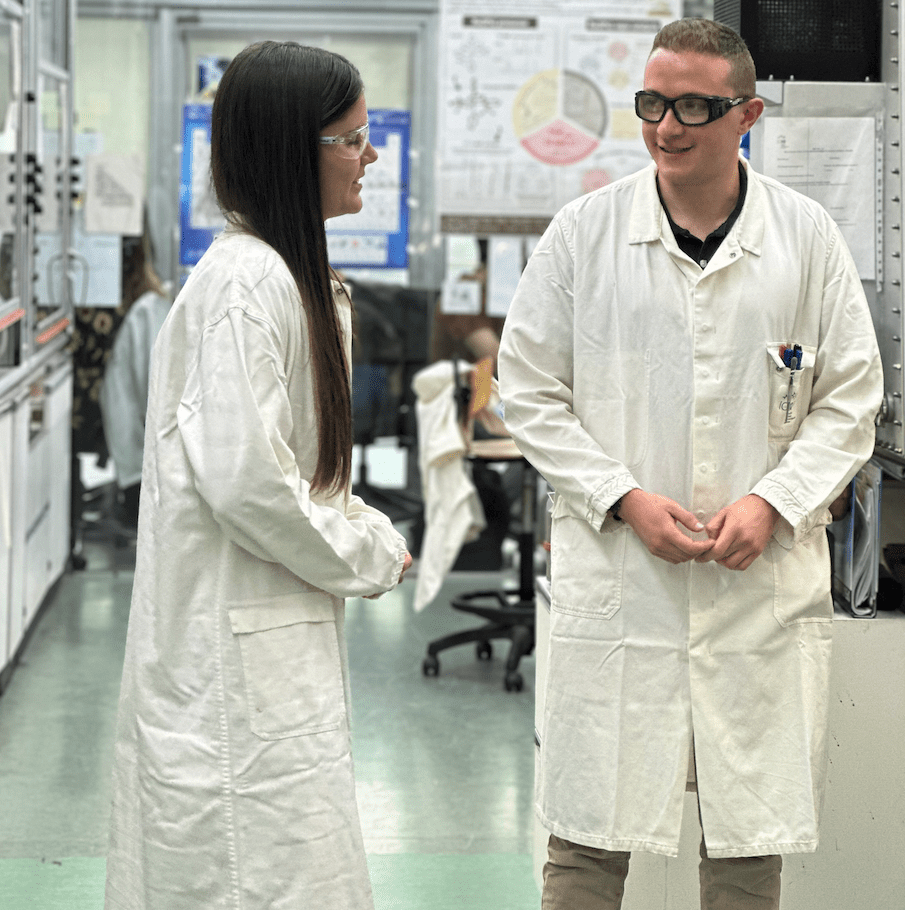
 14-03-2025
14-03-2025 
